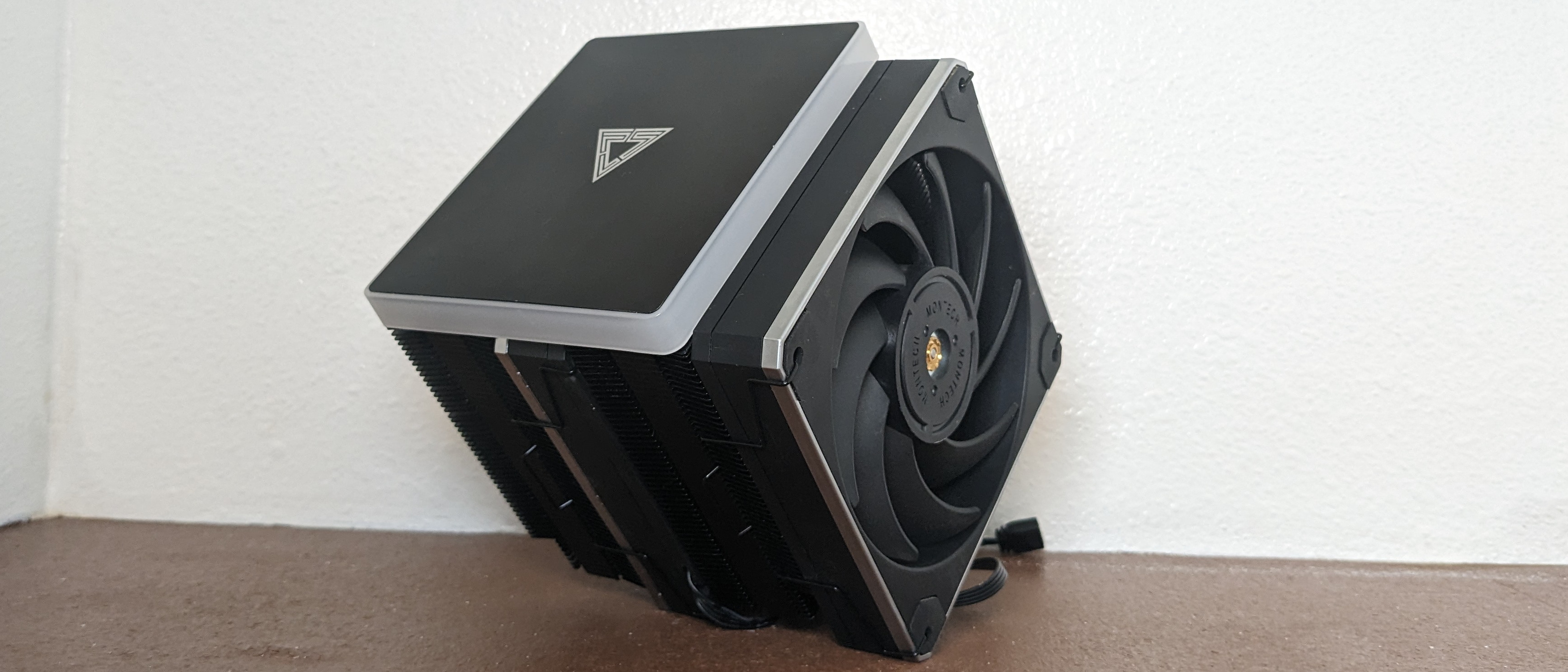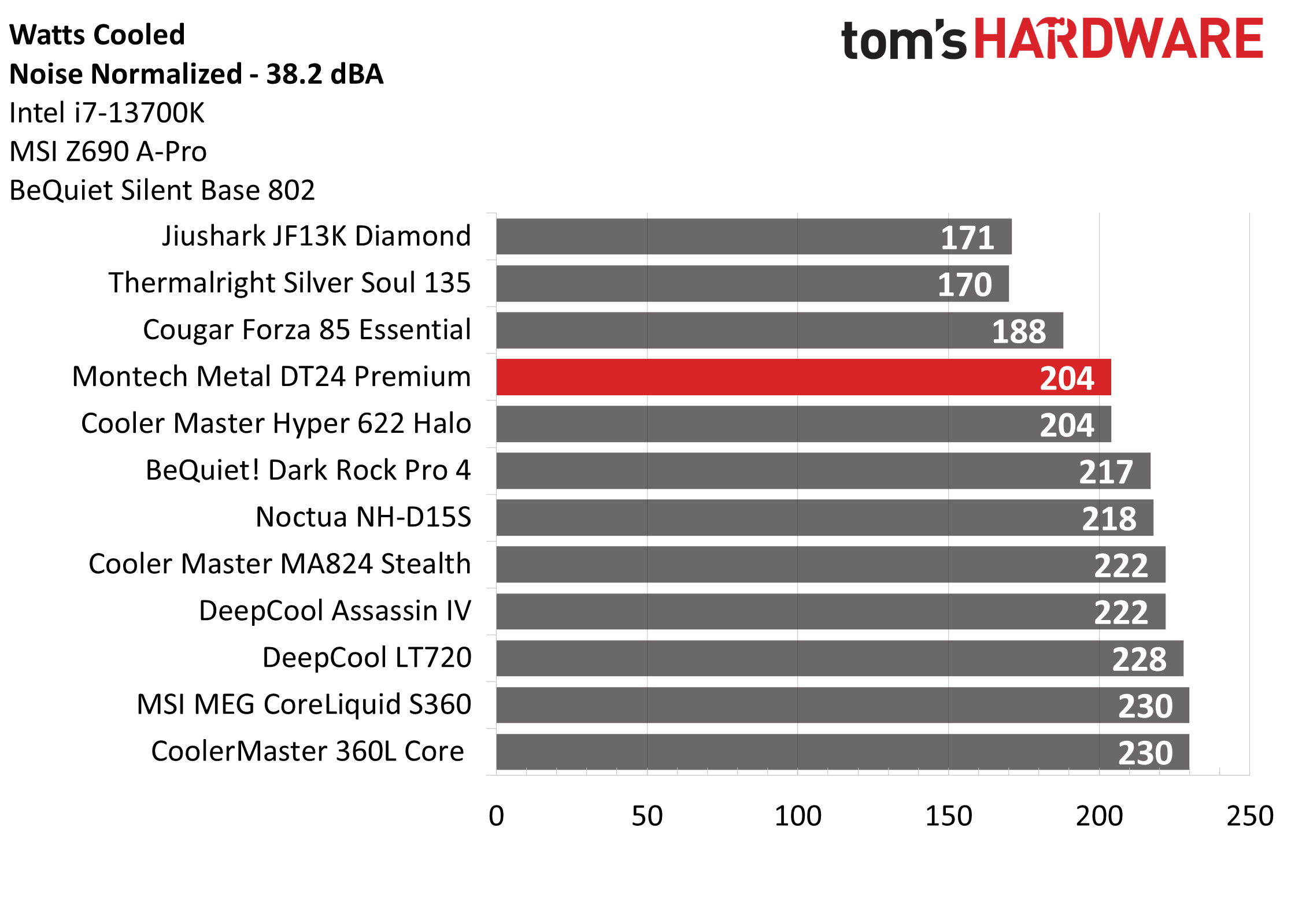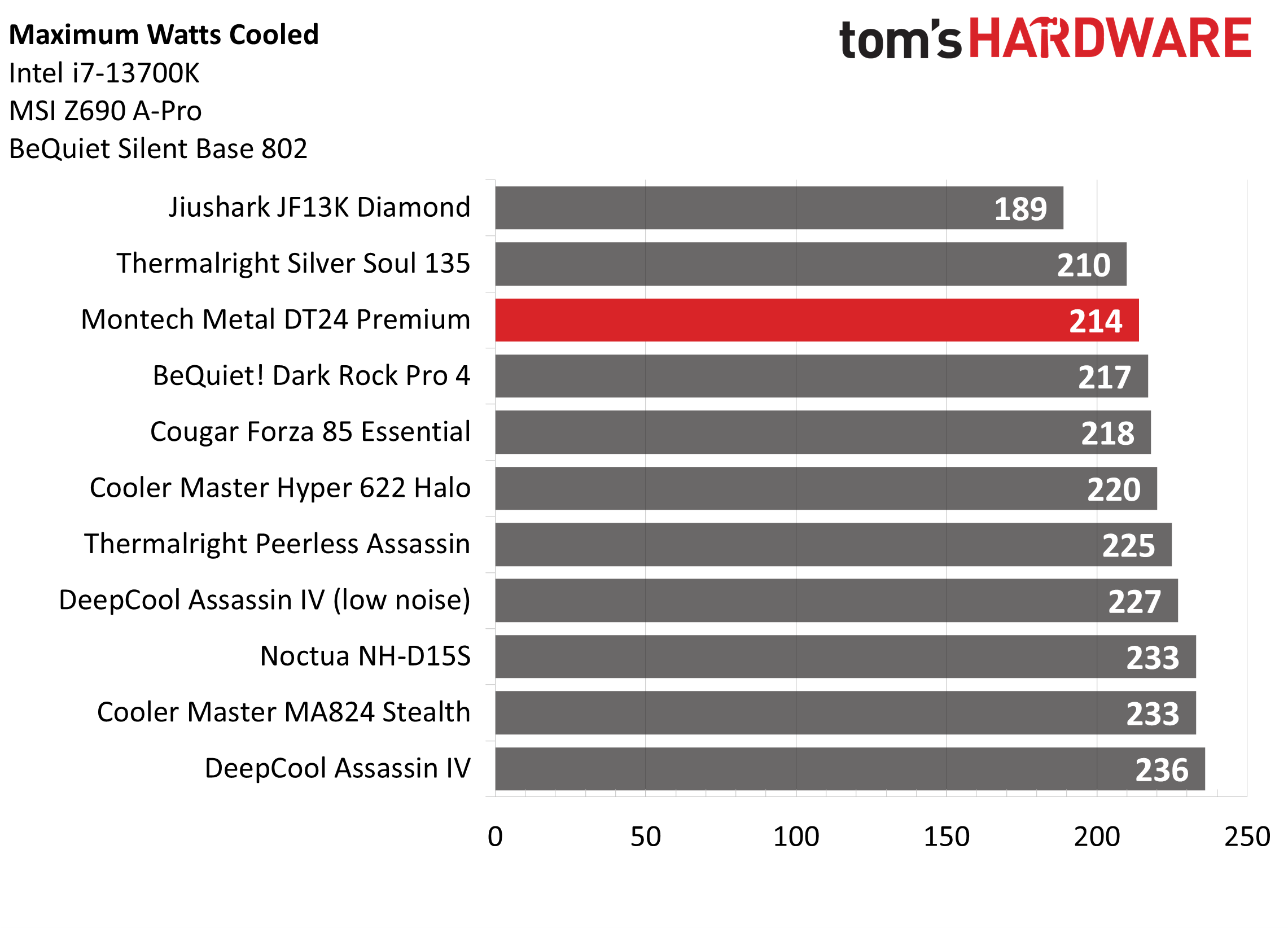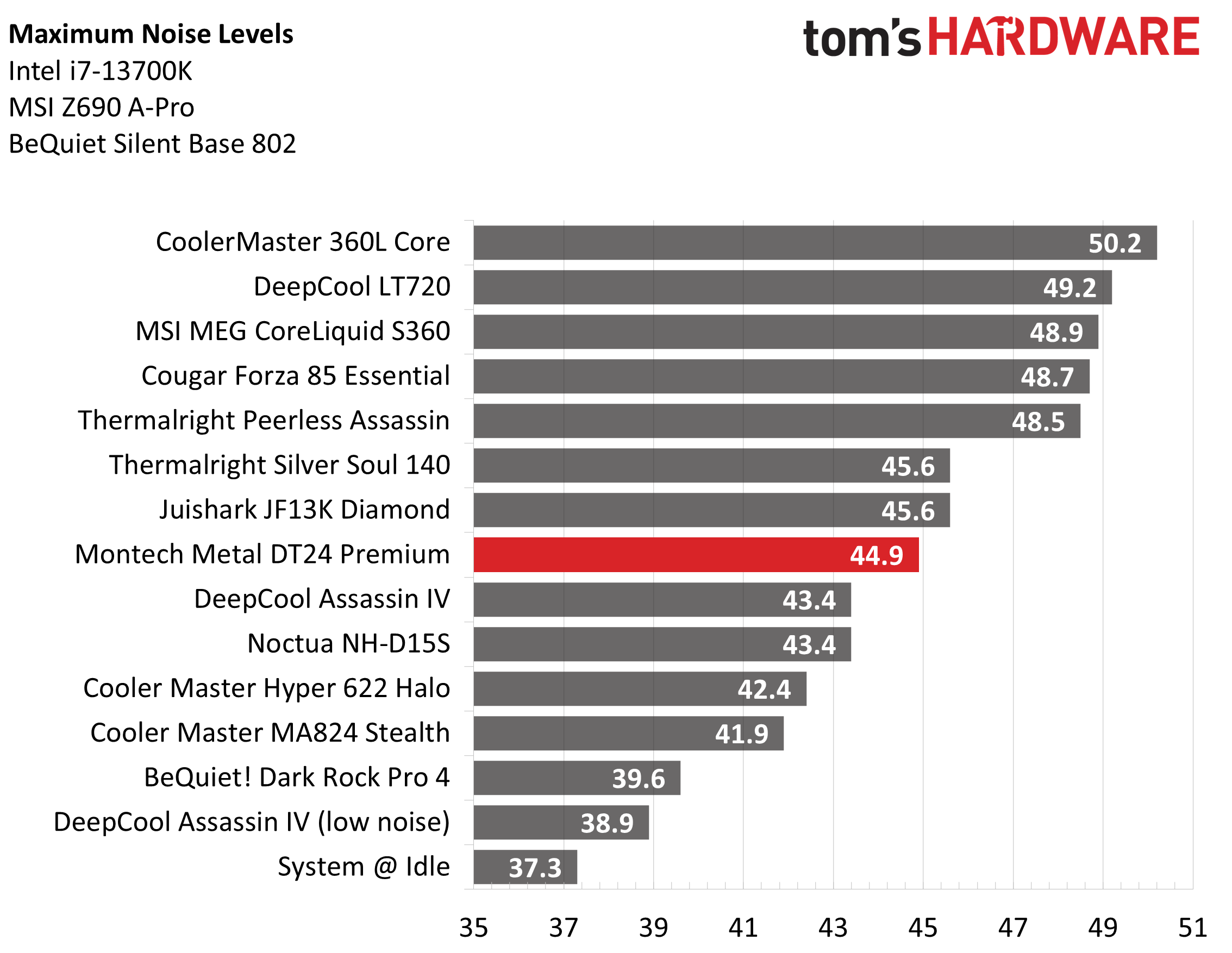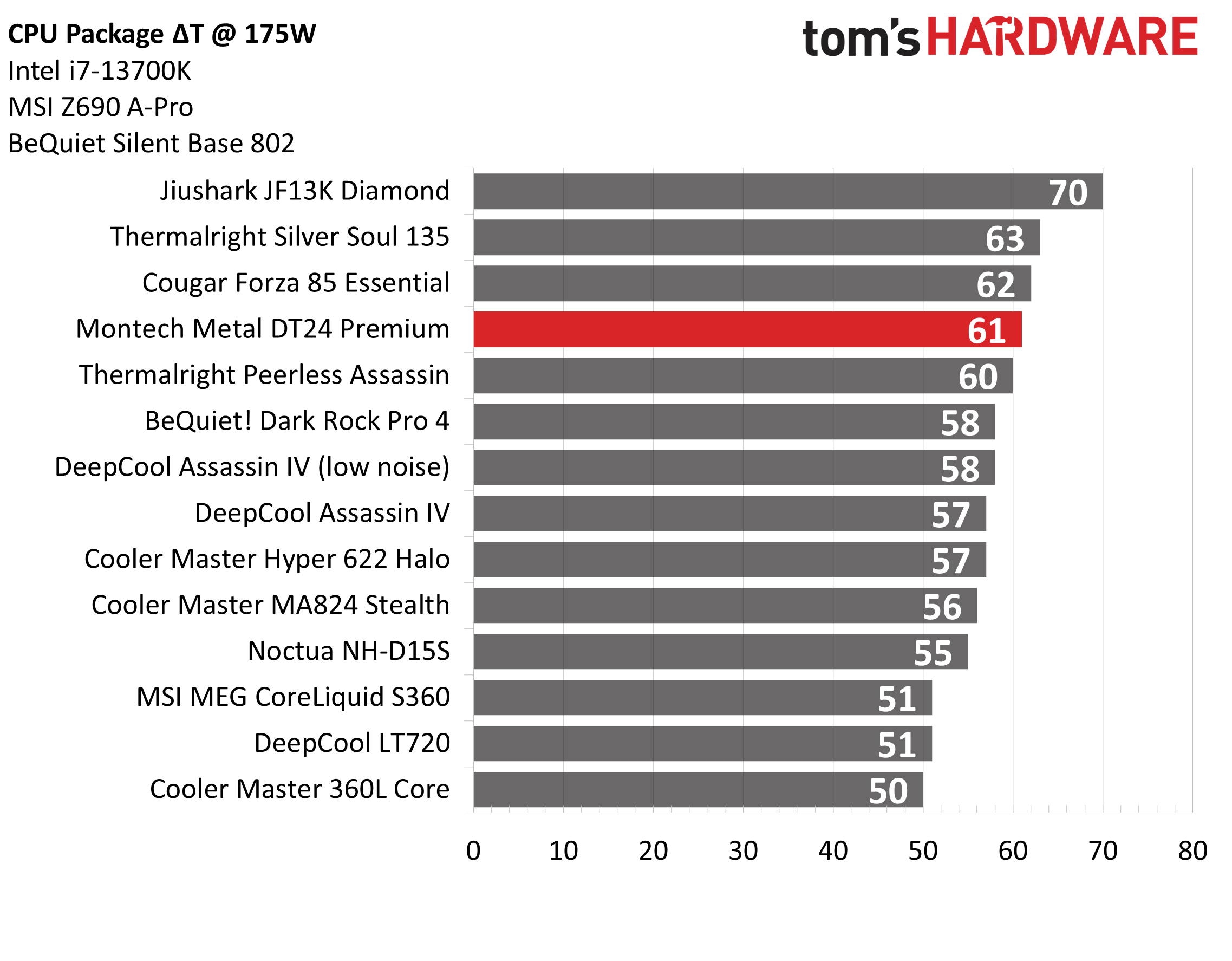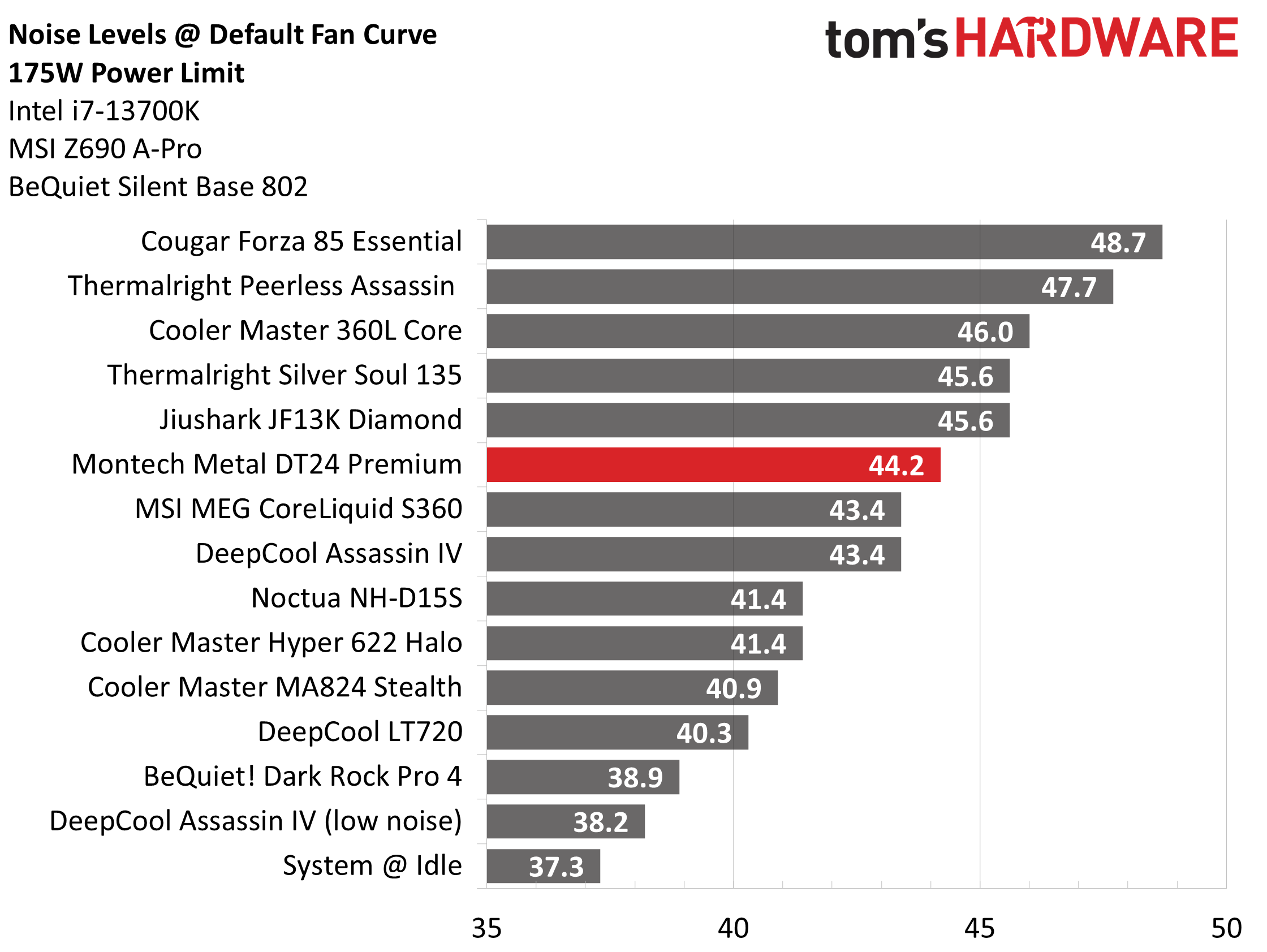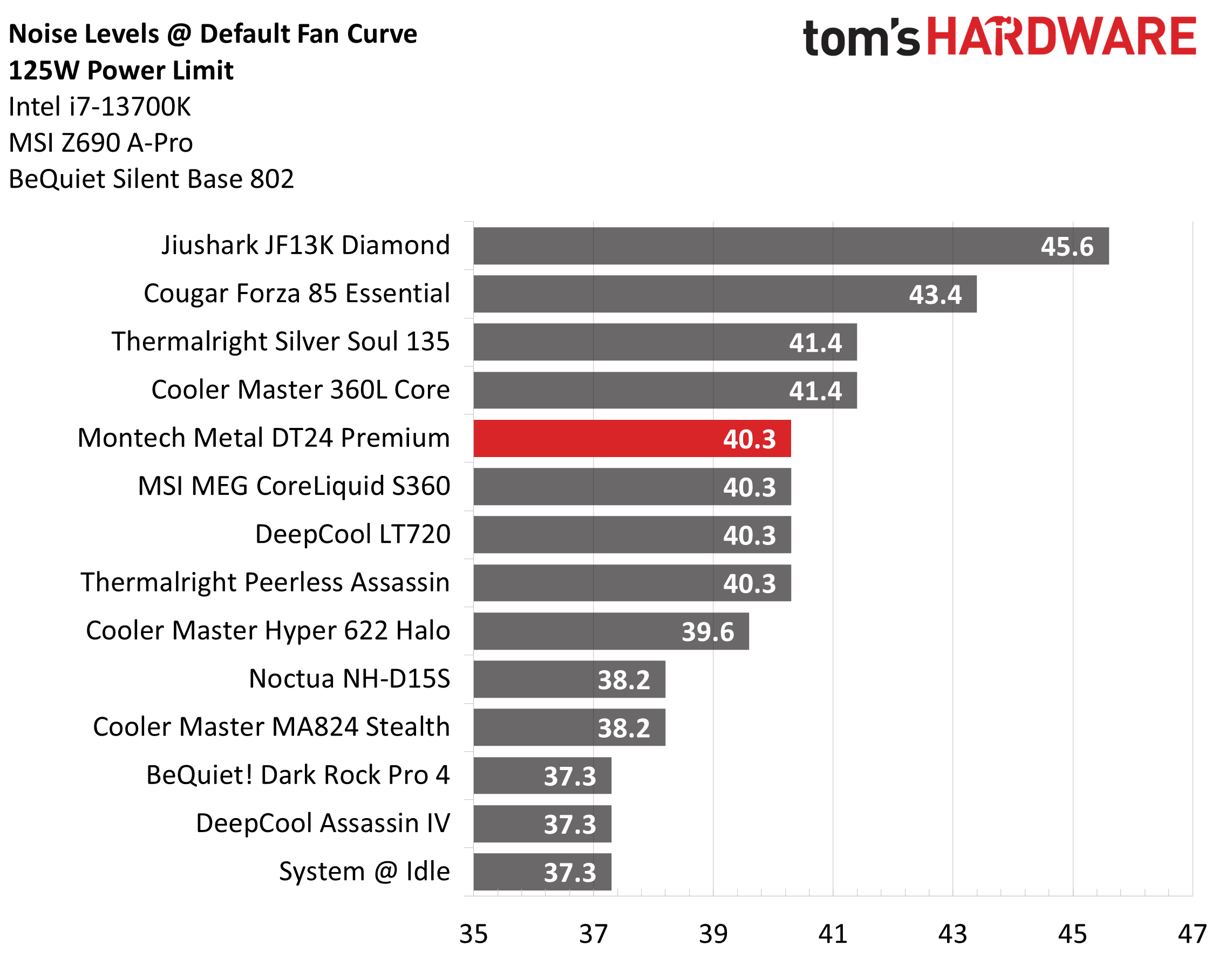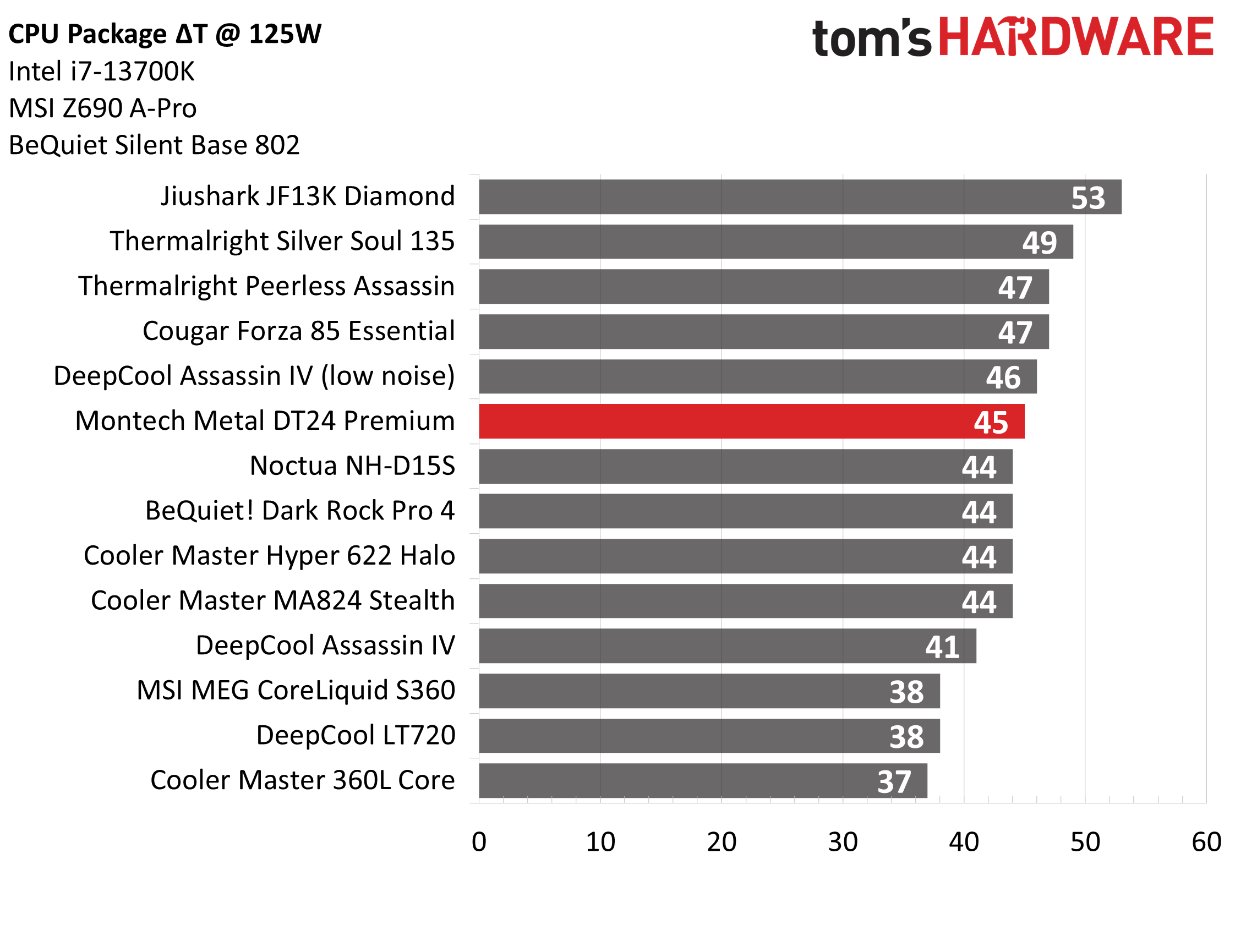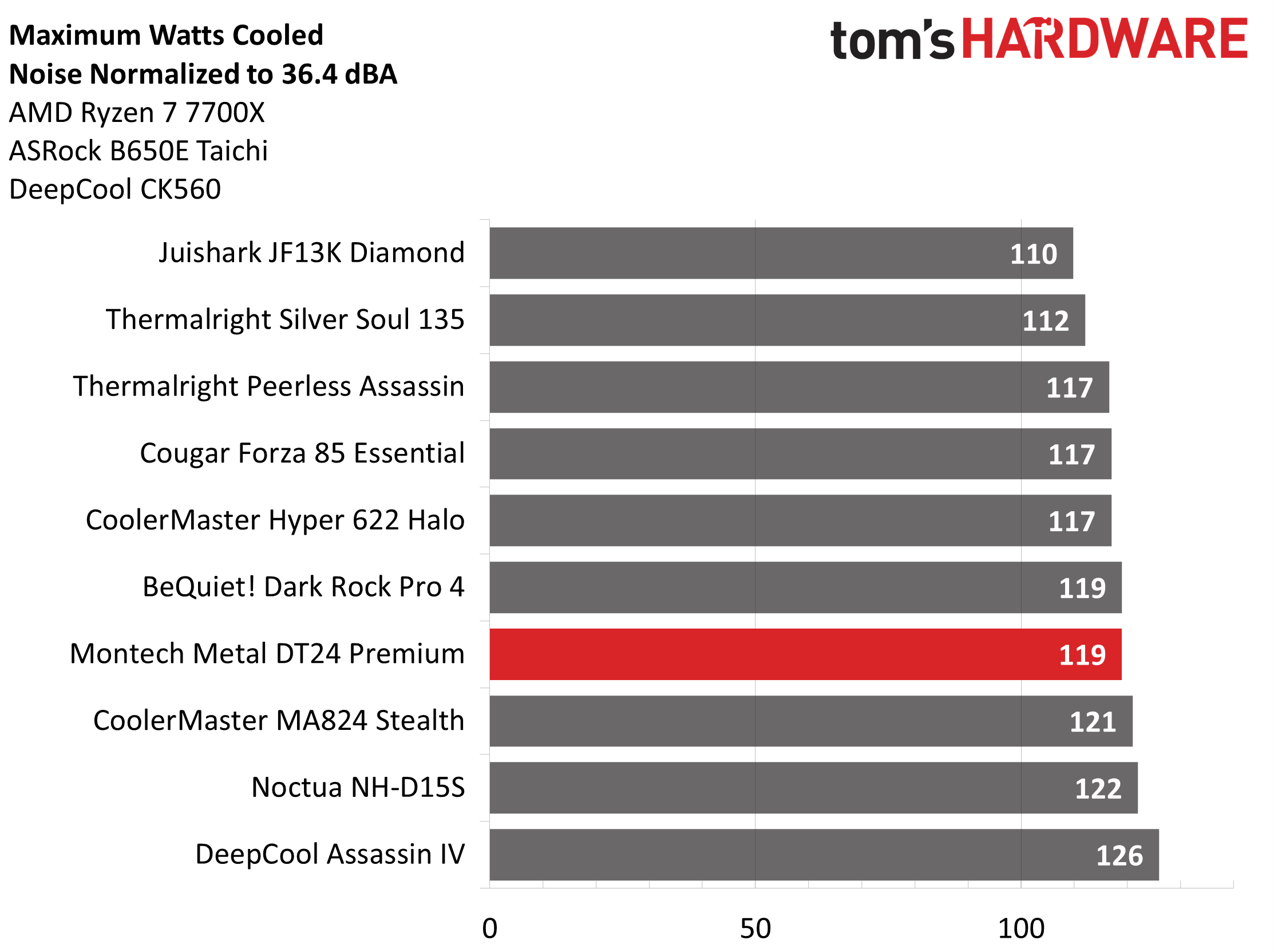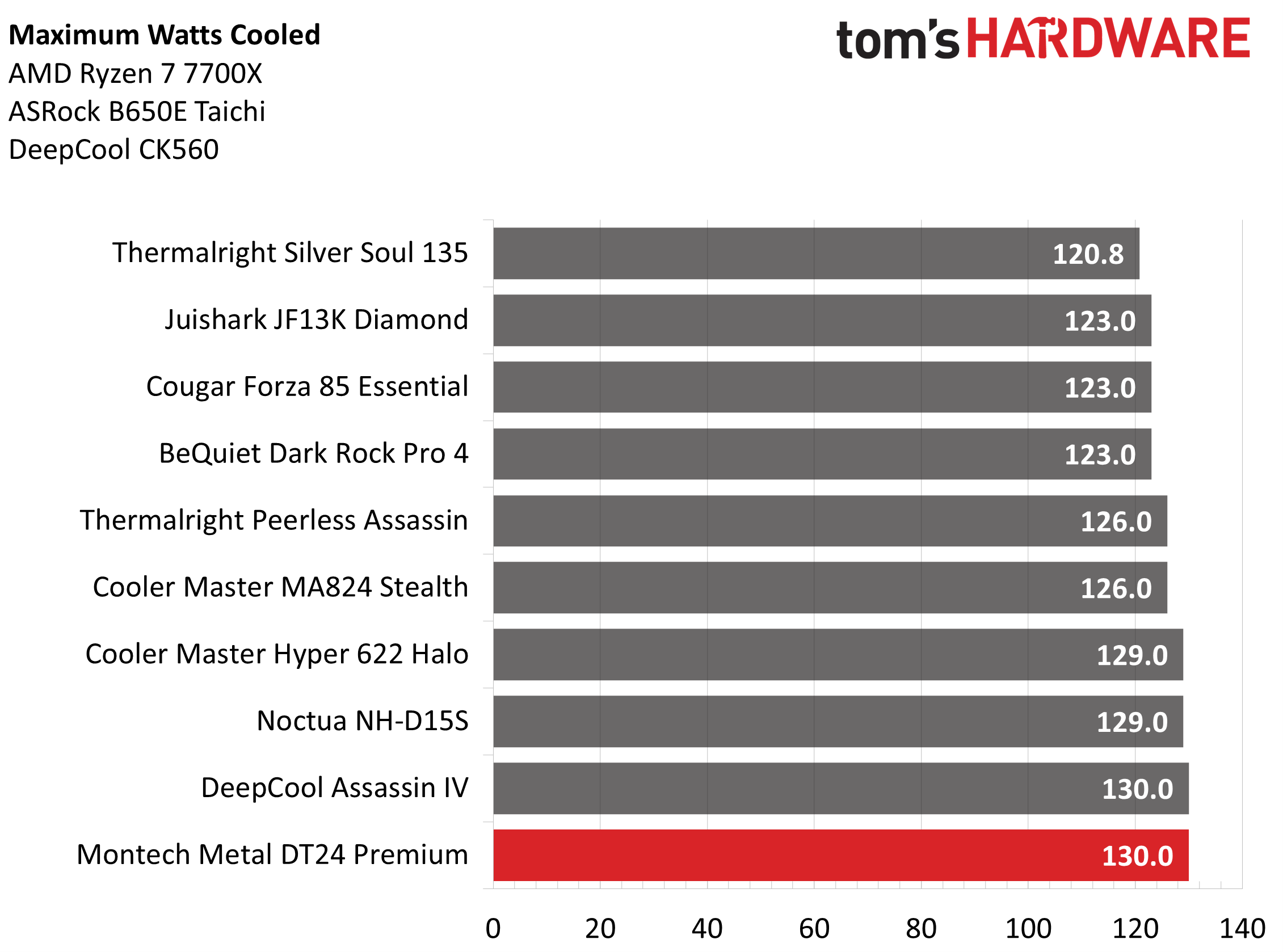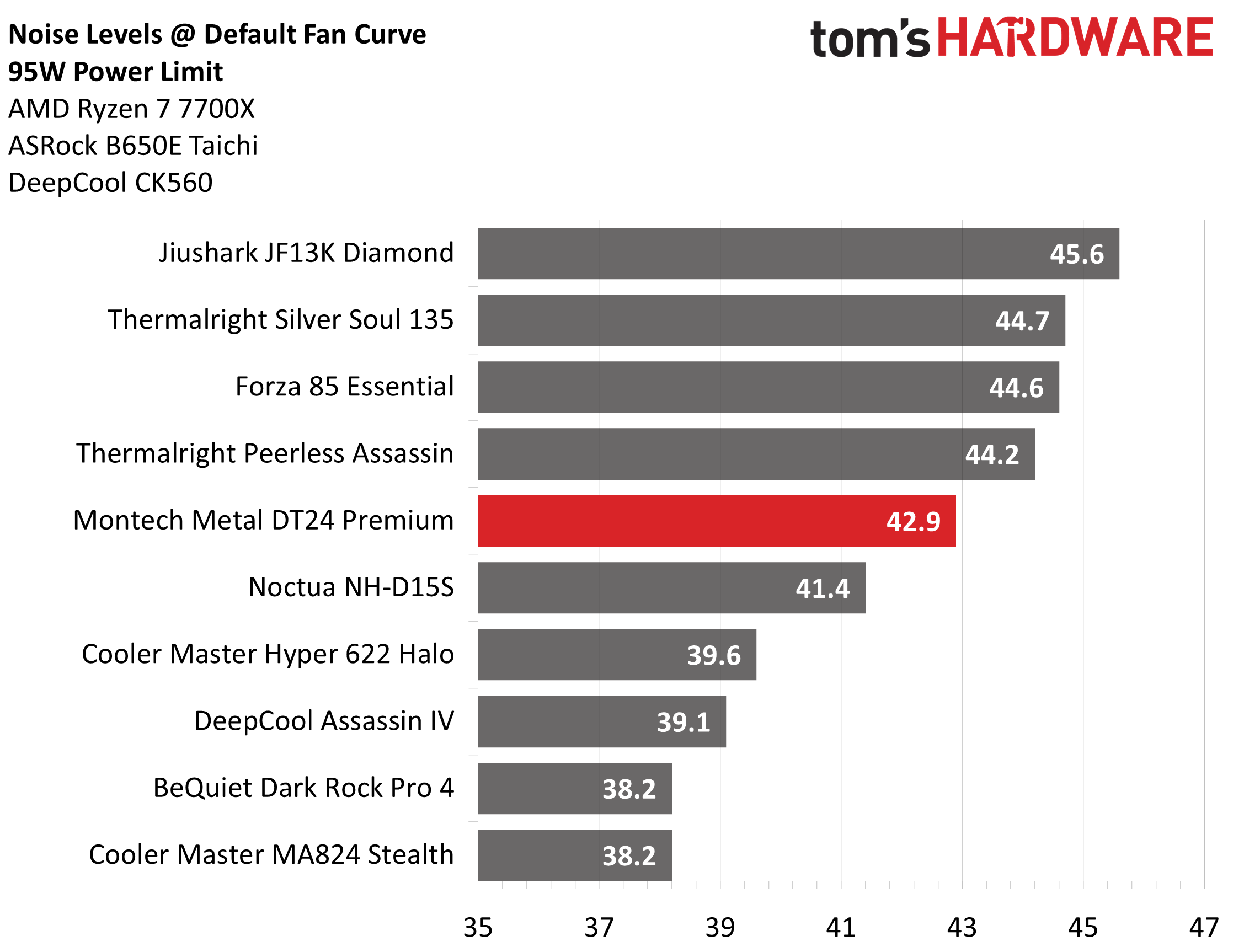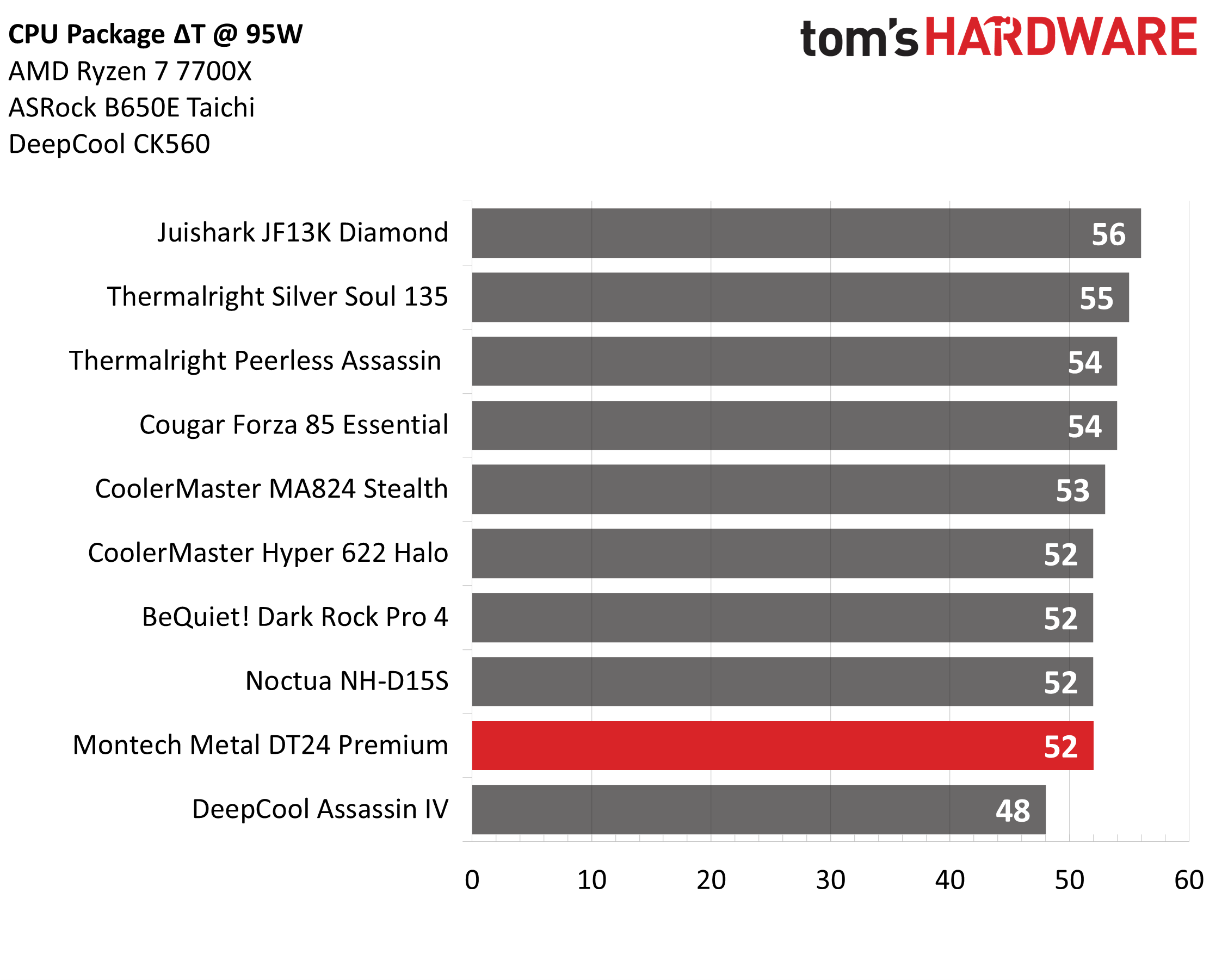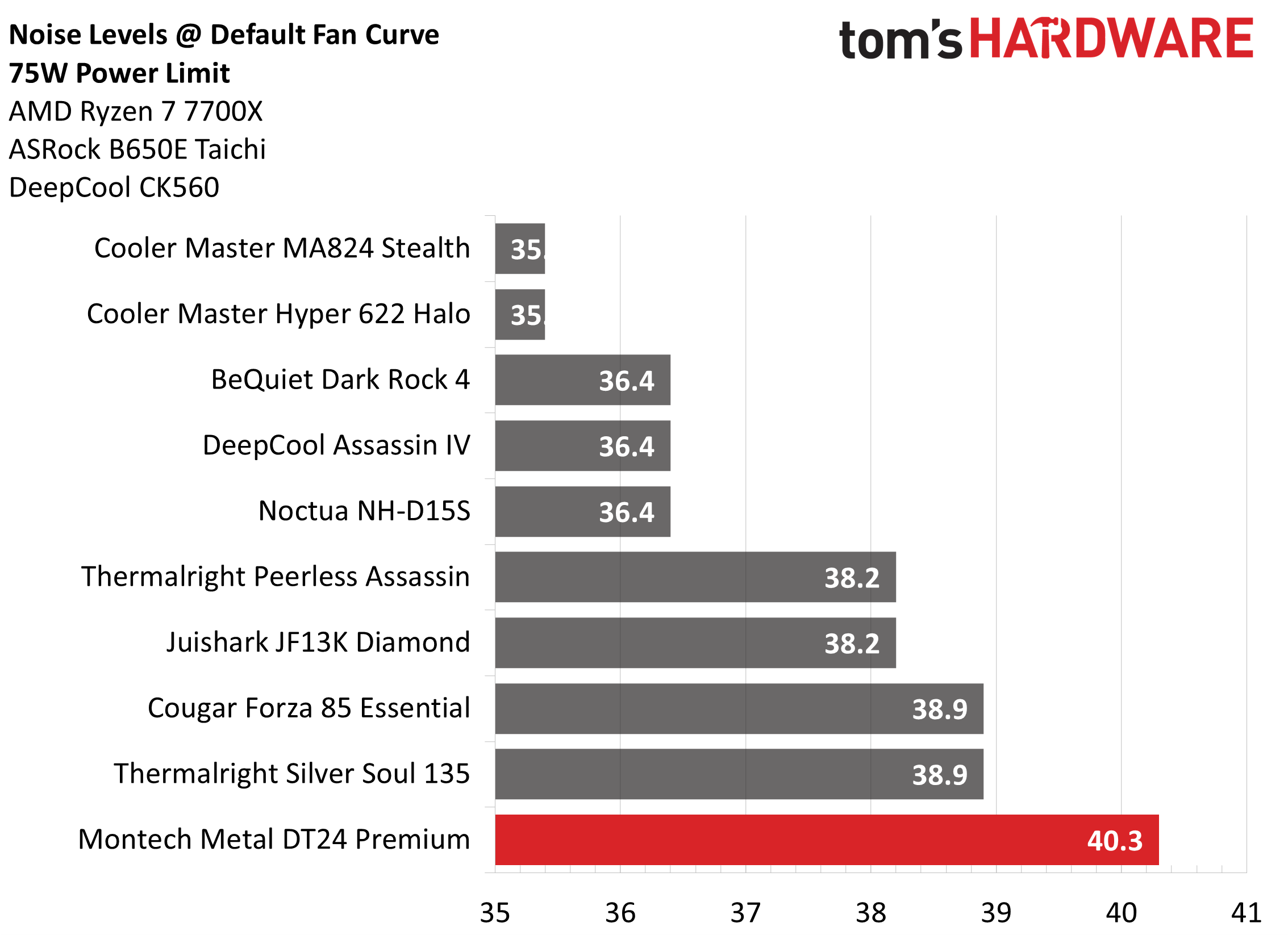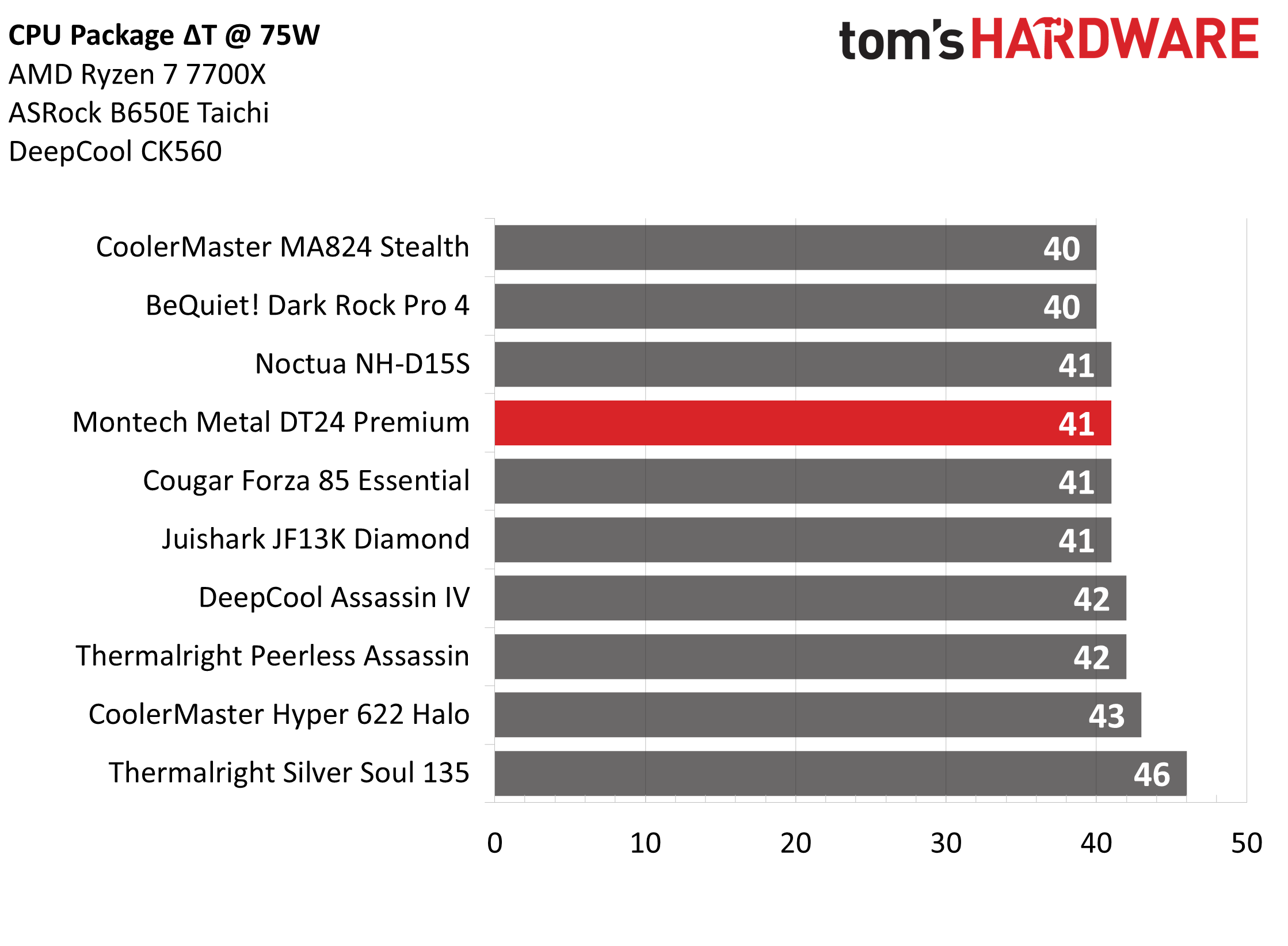Why you can trust Tom's Hardware
Thermal Results with noise normalized to 38.2 dBA
Finding the right balance between fan noise levels and cooling performance is important. While running fans at full speed can improve cooling capacity to some extent, the benefits are limited and many users prefer a quiet system.
Montech’s Metal DT24 Premium performs about as expected in this scenario. With 204 watts measured, performance is not quite as strong compared to higher-end coolers like Noctua’s NH-D15S, but it does better than lower-end offerings like Thermalright’s Silver Soul 135 or Cougar’s Forza 85 Essential.
No Power Limits Thermal Results
Without power limits enforced on Intel’s i7-13700K, the CPU will hit its peak temperature and thermally throttle with even the strongest air coolers. In this test, we measure the total amount of watts the cooler is able to dissipate from the CPU.
In this test of a cooler’s maximum cooling capacity, Montech’s Metal DT24 Premium does acceptably, but it is on the lower end of what I expect out of a quality air cooler. It achieves this level of performance with a moderate noise level of 44.9 dBA, which at least isn’t very loud. This is better than coolers like DeepCool’s AG620, but a bit noisier than Noctua’s NH-D15S.
175W Cinebench Results
Most modern coolers are able to keep Intel’s i7-13700K under it’s peak temperature if the power consumption is limited, so for this test, we’ll be looking at the CPU’s actual temperature.
While the performance levels here weren’t bad, they weren’t as good as I had expected. Noise levels were almost as loud as the fully unrestricted loads, and the thermal performance was behind competing coolers.
125W Cinebench Results
The lowest power limit I test with Raptor Lake CPUs is 125W. This is a high enough limit to allow the CPU to maintain it’s base clock speeds even in the most intensive tests, and most coolers should be able to keep the CPU below Tjmax – even low end coolers.
Get Tom's Hardware's best news and in-depth reviews, straight to your inbox.
Thermal performance in this restricted workload was acceptable with an average CPU temperature of 68C, and the cooler ran with a quiet hum, with noise measured at 40.3 dBA.
AMD Ryzen 7 7700X Thermal Results
It’s great to see how coolers perform with hotter CPUs like Intel’s i7-13700K, but that performance doesn’t always directly translate to how other CPUs will operate with the same coolers. Some coolers might perform better or worse depending on the CPU it’s paired with, and that’s certainly the case with Montech’s Metal DT24 Premium, as you’ll see from the AMD Ryzen 7 7700X benchmarks below.
Thermal Results with noise normalized to 36.4 dBA
Ryzen scales differently with cooling than Intel’s i7-13700K, and as such Montech’s Metal DT24 Premium performs much closer to higher-end products when it comes to AMD. With 119W cooled, its performance was just shy of Cooler Master’s MA824 Stealth or Noctua’s NH-D15S when paired with AMD’s Ryzen 7700X CPU.
Maximum Cooling Capacity, Maximum Fan Speeds
Our next test is to test the cooler’s maximum cooling capacity by allowing the fans to run at full speed. When I first saw the results of Montech’s cooler, I had to re-test it, then re-test it again because I couldn’t believe what I was seeing.
When the fans weren’t restricted, running at their full speed, Montech’s DT24 Premium tied with DeepCool’s Assassin IV for the best results we’ve seen on AMD’s Ryzen 7700X. This level of performance was unexpected and very impressive, and again shows the importance of testing a cooler on multiple CPUs. How a cooler performance with a higher TDP CPU doesn’t always correlate with how it will perform on more power-efficient processors.
Thermals and Acoustics with a 95W Power Limit
Not every task will force the CPU to use its full potential or maximum power draw, so it’s good to test coolers in a variety of power limits. In these situations, it’s generally more important to consider the noise levels, and the Metal DT24 Premium is acceptable in that respect. The acoustics were at the level of a low hum, with 42.9 dBA measured. The cooler maintains this low noise level while keeping the second-best thermal result whenpaired with AMD’s Ryzen 7700X. And the CPU maintained an average of 75 degrees Celcius in an ambient temperature of 23 C.
Thermals and Acoustics with a 75W Power Limit
With the power draw reduced to 75W on AMD’s Ryzen 7 7700X, this thermal load shouldn’t be difficult for most coolers. This is roughly the amount of power Ryzen 7 7700X CPU will use during gaming, and it’s also the maximum power consumption of AMD’s non-X Ryzen 7 CPU.
Thermal results are again very good here measuring at only 64C, tied for the second-best result. The measured noise levels of 40.3 aren’t loud in any sense of the word, but this cooler is noisier than the other coolers tested in this scenario.
Conclusion
Montech’s Metal DT24 Premium makes a decent pairing with any modern AMD or Intel CPU. But it performs especially strong with AMD’s Ryzen 7 7700X. The subtle design and RGB of the DT24 Premium will appeal to those who like a subdued light show. We are, however, concerned by the low-rated fan lifespan of only 40,000 hours, especially when many competitor products offering ratings of 100,000 hours and longer.

Albert Thomas is a contributor for Tom’s Hardware, primarily covering CPU cooling reviews.
